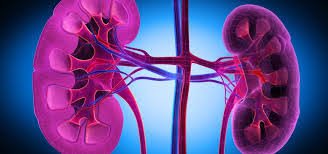Korede Abdullah in Lagos
Nigeria is set to host its first regional meeting on Lassa fever vaccine development on January 15, 2025, demonstrating its leadership in addressing one of West Africa’s most pressing public health challenges.
According to Prof. Ali Pate, the Coordinating Minister of Health and Social Welfare on Monday in an interview on Channels TV monitored by Africa Health Report, “Nigeria is at the forefront of efforts to develop a vaccine for Lassa fever. We are working with a consortium of countries, and this discussion is a step towards a long-term solution to the Lassa fever problem.”
Pate emphasized the importance of collaboration between various sectors and levels of government to improve health outcomes. He noted that factors such as education, sanitation, water access, and security are deeply intertwined with health.
For instance, uneducated mothers are more likely to have children who miss essential immunizations, highlighting the link between education and public health.
According to the Minister, the government’s vision for a more robust health system under President Bola Tinubu’s Renewed Hope Agenda aims to provide equitable access to essential healthcare services.
Pate stressed that healthcare must go hand-in-hand with broader social support systems, such as improved sanitation, nutrition, and financial protection for vulnerable groups.
He also advocated for the establishment of a catastrophic health insurance fund to shield low-income families from the devastating costs of major illnesses.
Pate reaffirmed the government’s commitment to building a health system that serves the people’s needs while fostering cooperation across all sectors and levels of governance.
“Health is central to social protection and poverty alleviation. A family pushed into poverty due to illness is a tragedy we can prevent with the right systems in place,” he said.
In 2024, Nigeria faced a significant Lassa fever outbreak, recording 9,685 suspected cases, 1,187 confirmed infections, and 191 deaths across 138 Local Government Areas in 28 states.
The disease, caused by the Lassa virus and primarily spread by multimammate rats, typically peaks during the dry season.
To combat the outbreak, the Nigeria Centre for Disease Control and Prevention (NCDC) reactivated its Lassa Fever Emergency Operations Centre in December 2024, intensifying efforts to manage the situation.



